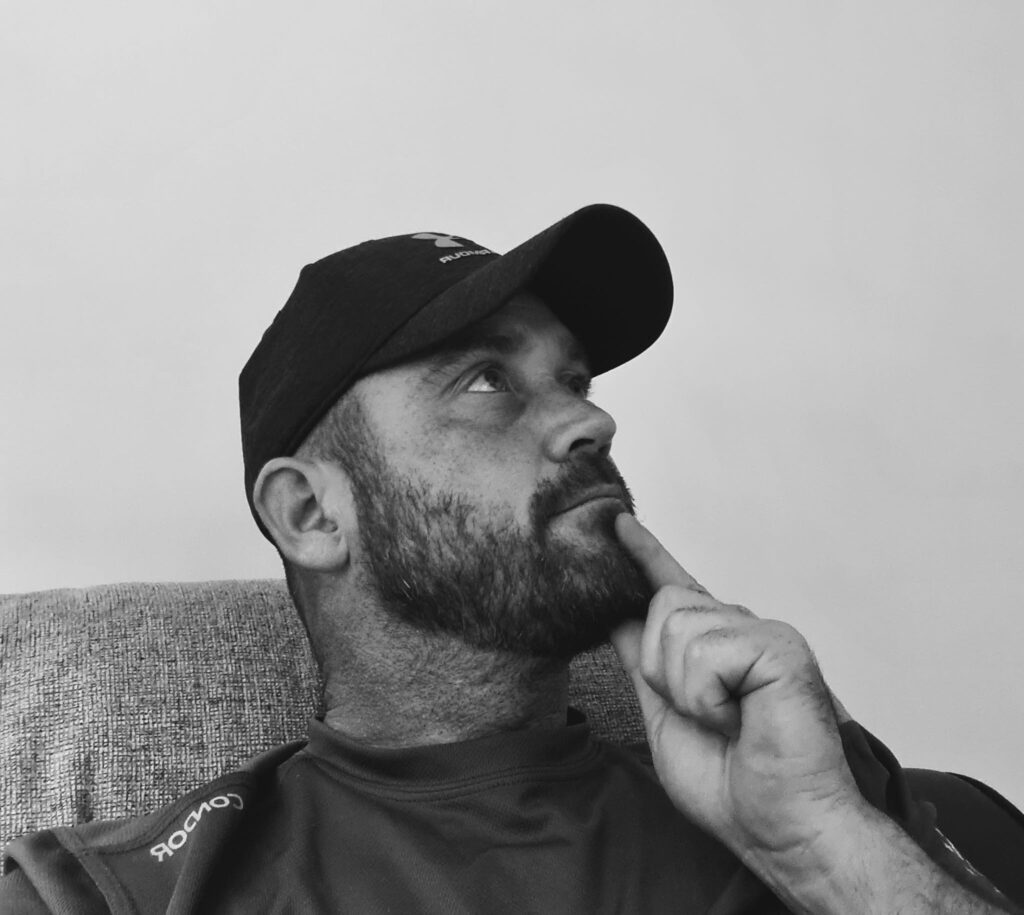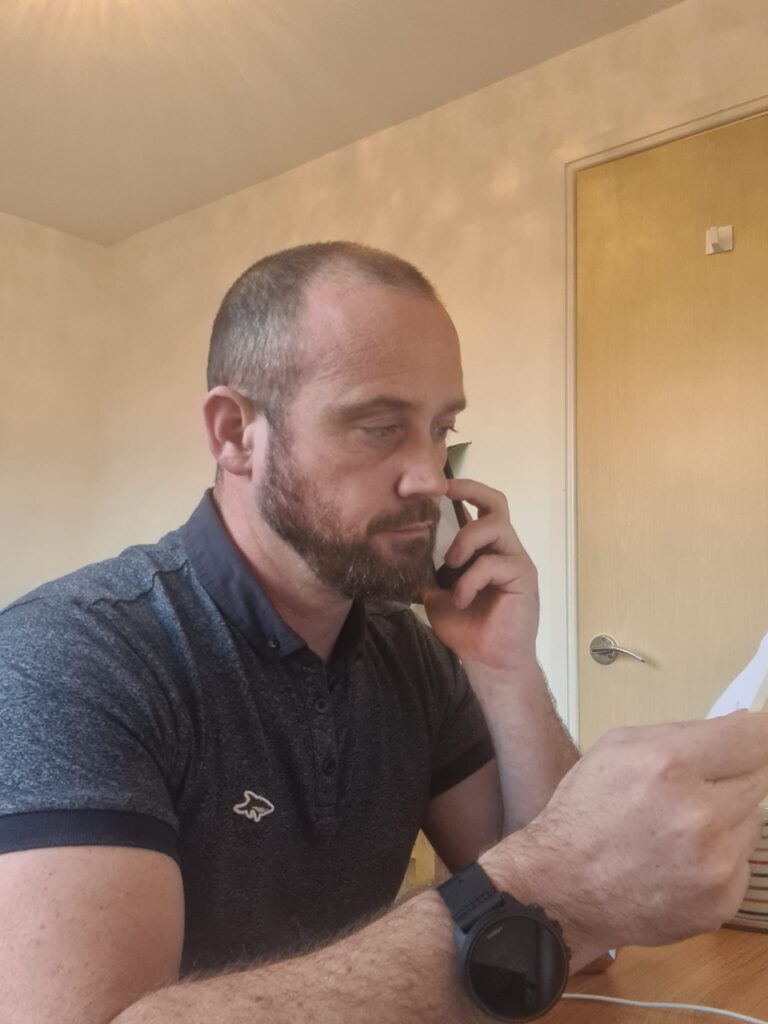
Have you ever found yourself setting goals or making plans, but then failing to follow through? If so, you’re not alone. This is a common issue that many people face, and it can be frustrating and discouraging. But why does this happen, and how can we overcome it? Keep reading and I’ll unpack the topic and give you some food for thought.
Q: “When is your launch date? When will your first episode be out??”
Me: “Ahh I’ve had an awful week. This happened, that happened…”
Excuse after excuse. Truth is, I was avoiding starting my podcast. I could have if I wanted to. But I was putting it off. Thoughts of: would anyone listen? What have I to say? I’ll do it next week, next month… kick the can down the road. Then I ticked the initial box off by setting the podcast, and I didn’t actually record any episodes. This massive effort of mine appeased me for a few days until it didn’t. I was stuck in the mud of inaction!

You see, I never wanted to start a podcast. It was suggested to me by one person, then another and another. So I looked into it over the last couple of years, and wondered about the usefulness of a platform to share information, insights, actionable and implementable processes…. The key word here is actionable – being practical and also being easily acted on.
All the best-laid plans in the world, even if backed up with genuine goodwill, if you never take action – won’t come to pass.
John Maxwell, an American author and speaker whose main speaking focus is on Leadership, popularised the “law of diminishing intent”. The law states that “The longer we delay doing something, the less likely it is that we’ll do it.” And if we don’t make some move towards doing something within 48 hours, we’re very unlikely to do it at all. In other words, the longer we procrastinate, the less motivated we become, and the harder it is to take action. So this clock of diminishing intent is always ticking…. even while we sit around and wait.

And this is where I found myself. My intent was decreasing daily. That long finger of procrastination grew longer… Until I had a little chat with myself this morning. I reminded myself how I dislike not finishing things, even more than not starting. Because if they mattered enough to me to make a start, then they should bloody well matter enough to box them off.
So, why does this happen? Well, there are a few potential reasons; here are just two I could think of.
Firstly, as time passes, and the distance between the initial thought and the present moment grows – we tend to simply forget about our goals or plans as they drift to the back of our minds.
Secondly, we may become overwhelmed by the task at hand and feel like we don’t know where to start. Finally, we may begin to doubt ourselves and our ability to succeed, leading to a lack of motivation.

This all sounds very negative doesn’t it? And it is… if not noticed and changed!
However, the good news is that there are ways to overcome the law of diminishing intent and take action towards our goals.
1. The first step is to create a plan of action. Immediately – if not sooner.
Jim Rohn once said “The time to act is when the idea is hot and the emotion is strong”
This doesn’t mean making rash/hasty decisions. But the first step in taking action is to make a plan. Initially, you’ll have a broad outline of your goal. Then, as you break down your goal into smaller, more manageable tasks, you’ll gain focus and clarity as to where you are in relation to the goal.
As part of the planning process, when you’re formulating the outline for your goals, it is imperative to use a proven goal-setting formula. A technique I use is SMART goal setting.
For those new to goal setting, SMART stands for:
Specific: What exactly are you trying to achieve? Easier to achieve or in this case GET STARTED
Measurable: How will you know when it has been achieved? Need to know when each goal, task or action is complete and can be ticked off and move to the next. Tracks progress
Achievable: Is it genuinely possible to achieve it? To be your goal, the action steps should be within your control, not wholly outside influenced
Realistic or relevant: This leads to the second point, in that in order to stay motivated or to avoid overwhelm, goals should be realistic. If they aren’t, the stress will be huge, you’ll become very frustrated with even the thought of it and likely not start.
Time Bound: A goal requires an end date. It helps us to stay focused and motivated because it inspires us to work towards a date and keeps us accountable.
So if you are ever setting a goal or listening to someone talk about theirs, maybe in future ask the question “Is this goal timebound?” or “When will you do this by?”
As Robert Herjavec said, “A goal without a timeline is just a dream”, and we want to make dreams a reality – by taking action.
Or another way of looking at things is: “Thinking of the hill is not the same as climbing the hill! – the views are never the same. Make a plan and start climbing.”

2. Face the fear of the unknown & see if a solution already exists.
Everyone that ever attempted anything new, has experienced a little fear and overwhelm along the way. Nelson Mandela said that “I learned that courage was not the absence of fear, but the triumph over it.”
But it can be hard to triumph when all we have is a desired end state – a dream – a vision or goal and haven’t a clue where to start or how to get there. Maybe you’re the first in your family, first in your circle of friends or colleagues to attempt this and so haven’t got a point of reference to begin with. I get it. That’s tough.
But you’re lucky because right now you’re reading this blog post, most likely on an iPhone or Android Smart Phone that is like a mini encyclopaedia in your pocket and so, your circle has now been expanded to the experiences of around 8Billion living and countless deceased individuals…
Get yourself a mentor. Someone who has done what you wish to attempt. Whether you know them or not, whether they are living or dead… Study them. Learn what worked for them and what didn’t. Pretty soon you’ll move from being overwhelmed and clueless of the start line – to wondering why you didn’t start this ages ago.
Who you surround yourself with matters

3. Reinforce yourself by evaluating your support network
Doubting yourself and questioning your ability to succeed, leads to a lack of motivation, and this is quite common actually. When someone doubts themself, their head and shoulders will drop and may engage in negative self-talk and become overwhelmed by the task at hand. This can make it difficult for them to take action towards their goals.
To overcome this, it’s important to recognise that self-doubt is a perfectly normal part of the process and that everyone experiences it at some point. What’s also important is to challenge those negative thoughts and replace them with positive affirmations and evidence of the contrary. This can help to shift your mindset from a place of self-doubt to a place of self-confidence. From a fixed mindset to one of growth.
I’ve found seeking support from others can be helpful. This can come in the form of talking to a friend, family member, mentor or coach who can offer encouragement and support. It can also come from seeking out a professional therapist or counsellor who can help you work through any underlying issues that may be contributing to your lack of motivation.
With getting my podcast over the line, I worked Jonny Pardoe, a coach whose speciality is the exact subject I was stuck on – PODCAST CREATION. I was doubting if I had done the right things initially. From the technology I was using to the backend set-up of the podcast, to colour schemes and audience…. The self-doubt was unreal.
I asked Jonny “Is there anything I have missed?” “In your opinion, what is my next step?” My questions went on, and on, and on… But, the reassurance I felt being told “Nope, all looks good mate” “Just set a date and launch”
This was stuff I already knew. But it was priceless to hear a pro say it!
You might not have a coach, but everyone has a support team. You don’t need the whole group. Just one good mate that will give you the truth or steer you in the right direction.
As far as motivation goes; it’s all well and good to talk about motivation to lite the initial fire within. But when the doubt and discomfort set in, when starting this podcast– I wasn’t motivated to finish things.
Breaking down the goal into smaller, more manageable tasks and scheduling them in my routine, not only alleviated the feelings of overwhelm but also built momentum towards achieving the goal. Checking things off my list one by one, Taking these small steps in the right direction, I got better at it. More competent. And with Competence comes Confidence.
Another thing about motivation is accountability. It’s important to hold yourself accountable to whatever the goal is. Another piece of advice Jonny gave me was to tell someone else about the launch date. It could be a friend, family member, or a group of people. Ya see, by sharing your goals with someone else, you’ll feel a greater sense of responsibility to follow through.

BONUS LESSON LEARNED
It’s important to remember that taking action doesn’t have to be perfect. Sometimes, we get stuck in the planning phase because we want everything to be just right. But, the truth is, taking imperfect action is better than taking no action at all. It’s better to make progress towards your goal, even if it’s not perfect.. than to do nothing at all.
It may be ugly, but sometimes ugly works. If you are 80% ready – then launch whatever it is you are working toward.
You can test and refine it afterwards. Sharpen things up. Polish them off. But don’t wait for 100% before you pull the trigger, because you’ll never get to 100% that way.
Militaries the world over have a saying – “no plan survives first contact”. Basically, there are so many elements out of your control that you simply cannot plan or predict what they will do. All you can do is act accordingly and adapt.
So, in summary, the law of diminishing intent is a real phenomenon, but there are ways to overcome it. By creating a plan of action, holding yourself accountable, finding motivation, and taking imperfect action, you can make progress towards your goals and achieve success.
Séamus
Follow Seamus on www.seamusmcmanus.com and www.celticbreathwork.com
